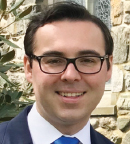For patients with rectal adenocarcinoma treated with neoadjuvant therapy followed by operative resection, “achieving a pathologic complete response is associated with excellent long-term disease-free and overall survival,” according to the results of a study reported by Naomi M. Sell, MD, MHS, of Massachusetts General Hospital, Boston, during the virtual edition of the 2020 Society of Surgical Oncology (SSO) International Conference on Surgical Cancer Care.1 “Many patients live more than 10 years with no evidence of disease, making it important to use these data to properly inform patients about the risks and benefits of watch-and-wait approaches in advanced rectal cancer,” Dr. Sell said.

Naomi M. Sell, MD, MHS
Dr. Sell and colleagues looked at institutional data from 2004 to 2017 and identified 370 patients with rectal carcinoma who underwent neoadjuvant therapy and then resection. Pathologic complete response was defined as “no tumor identified in the rectum or associated lymph nodes by final pathology following surgical resection.”
“Each patient was scheduled to receive neoadjuvant chemoradiation followed by adjuvant chemotherapy,” Dr. Sell said. Although 68% of all patients achieving a pathologic complete response received upfront fluorouracil and radiation therapy, 100% of the 10-year survivors did. The median initial tumor size was 4 cm for all patients.
“Of note,” Dr. Sell remarked, “following the completion of neoadjuvant therapy, 9 of the 50 patients, or 18%, were documented as having a clinical complete response by endoscopy, anorectal exam, or radiographic imaging.”
‘Exemplary’ Postoperative Outcomes
Among the 50 patients achieving a pathologic complete response, postoperative outcomes were “exemplary,” Dr. Sell noted. No local recurrence was found in any of these patients, although distant metastasis to the lungs was observed in one patient 44 months after proctectomy and was surgically resected. “The patient now has no evidence of disease at 15.5 years after the initial operation,” Dr. Sell reported.
“At the conclusion of the follow-up period, seven of the patients who achieved a pathologic complete response had died, including one of the long-term survivors (more than 10 years). Only a single death was related to cancer, and this patient died of follicular lymphoma 3.7 years after proctectomy. Not a single death was attributed to rectal cancer,” commented Dr. Sell. “The median overall survival of all patients who achieved a pathologic complete response is 9 years, and the median overall survival of the greater than 10-year survivor cohort is 12.1 years, with 95% of patients alive to date.”

Nick Weber
Following her presentation, Dr. Sell was awarded the 2020 Dr. Thomas K. Weber Colorectal Research Scholar Award “for her research on the long-term efficacy of treating rectal adenocarcinoma with neoadjuvant therapy and surgical resection,” commented Colon Cancer Foundation Board Member Nick Weber. “Dr. Sell’s study importantly expands the body of literature on overall survival rates following a pathologic complete response for patients with rectal adenocarcinoma,” Mr. Weber said. The award is named after Mr. Weber’s late father, who “dedicated his life to raising awareness and researching all aspects of colorectal cancer.”
‘Powerful Predictor’
Another study among patients with recurrent rectal cancer also found that a pathologic response is a “powerful predictor of improved oncologic outcomes, underlying the importance of achieving a good response,” noted lead author, Eva Voogt, MD, of Catharina Hospital Eindhoven, Netherlands.2
Despite standard treatment with neoadjuvant chemoradiotherapy or reirradiation followed by surgery, “R0 resections are achieved in only 60% of patients, and a complete pathologic response is seen in only about 49% of these patients,” Dr. Voogt stated. “In our institution, therefore, we added induction chemotherapy to the neoadjuvant treatment with the aim to improve this outcome.”

Eva Voogt, MD
The study included all patients with recurrent rectal cancer who underwent intentionally curative surgery between 2010 and 2018 after treatment with induction chemotherapy—three cycles of CAPOX (capecitabine and oxaliplatin) or four cycles of FOLFOX (leucovorin, fluorouracil, oxaliplatin)—followed by chemo(re)irradiation. After restaging with MRI and CT, patients continued with radiotherapy and concomitant capecitabine.
“In cases of response assessed by MRI, patients received one additional cycle of CAPOX or two additional cycles of FOLFOX,” Dr. Voogt explained. Following another MRI and CT, patients were scheduled for surgery.
The chemotherapy regimen was reported to be well tolerated, “with 10% grade 3 to 4 toxicity during induction chemotherapy and just 2% grade 3 to 4 toxicity during chemoradiotherapy,” Dr. Voogt said. “Postoperative complications were also acceptable,” with 31% of patients experiencing a grade 3 or higher complication and no in-hospital mortality.
Consistent Responses
Most of the 132 patients included in the study had a first recurrence, and 27% had synchronous metastases. Those patients received reirradiation, then surgery within up to 14 weeks.
“The majority of patients underwent an extensive surgical resection; R0 resection was achieved in 63% of patients, and a pathologic complete response was observed in 17% of the patients,” Dr. Voogt reported. A “good” response (Maynard 2–3) occurred in 56% of patients and a “poor” response (Maynard 4–5), in 27%. “A pathologic response was not a significant predictive variable for overall survival. However, it is notable that, for patients with a complete pathologic response, the 3-year overall survival was 92%, which is outstanding,” Dr. Voogt said.
“However, for metastases-free survival, as well as local recurrence–free survival, pathologic response was a significant predictive variable,” she added. “Complete responders consistently demonstrated an excellent outcome in terms of overall, metastases-free, and local recurrence–free survival. In addition, patients with a good response and R0 resection showed an outcome almost as good as that in patients with a pathologic complete response.”
“From this study, we can conclude that treatment with induction chemotherapy followed by chemoradiotherapy leads to a high pathologic complete response rate of 17%, which translates into an excellent 3-year overall survival in these patients,” Dr. Voogt stated.
DISCLOSURE: Dr. Sell, Mr. Weber, and Dr. Voogt reported no conflicts of interest.
REFERENCES

